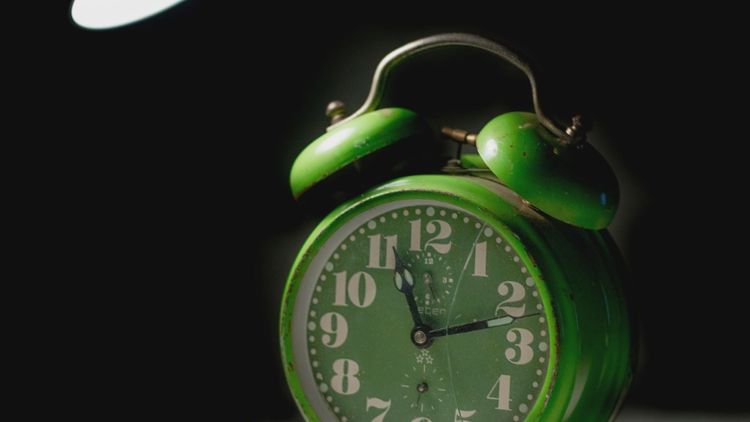PORTLAND, Oregon — Going back to standard time each fall seems like it should be easier than springing forward for most people; after all, we're gaining an hour instead of losing one, and the sky lightens earlier in the morning.
As Oregon gets ready to fall back from Daylight Saving Time this Sunday, new research out of the University of Oregon suggests that assessment is accurate, particularly when it comes to workers on the job. The study runs the data on how the annual clock shifts could affect you and your work, and concludes that people handle the fall change much better.
Past studies have shown the difficulties that arise when the clocks jump forward in the spring; people are less productive at work for the first day or two. But the University of Oregon study, published in the Journal of Economic Behavior and Organization, shows that the loss of productivity lasts much longer than previously known.
"What we find is not just on that Monday, but well into the second week, we're still seeing the imprint of what looks like declines in morning productivity that humans are sort of scrambling to make up for later on in the day," said economics professor Glen Waddell.
Waddell led the study of worker productivity, looking at the issue not just day-to-day, but hour-by-hour. He collaborated on the paper with Andrew Dickinson, a doctoral student in economics in the UO’s College of Arts and Sciences.
The pair looked at nearly 175,000 people that use the cloud sharing app GitHub to do their work. The publicly available GitHub records enabled the researchers to examine worker activity down to the second, and the data showed that springing forward in March really messes with people and makes folks less efficient in the early part of the workday.
"And in the fall of course we pick up an hour and there we actually see an increase in those morning hours of productivity, so we're sort of convinced by that that it has something to do with sleep, not just the dissonance of our clock times having changed," said Waddell.
West Coast state legislatures have made efforts to end daylight saving time and stick with the standard, but it hasn't yet stuck.
While researchers don't make policy, their work can influence it. The UO study is some of the strongest research yet to suggest it's time for a time change.
"We're not really subtle here; we're suggesting that there's some real downside to this," Waddell said. "Let’s bring it back out of committee; let's get things moving and we can improve lives."



